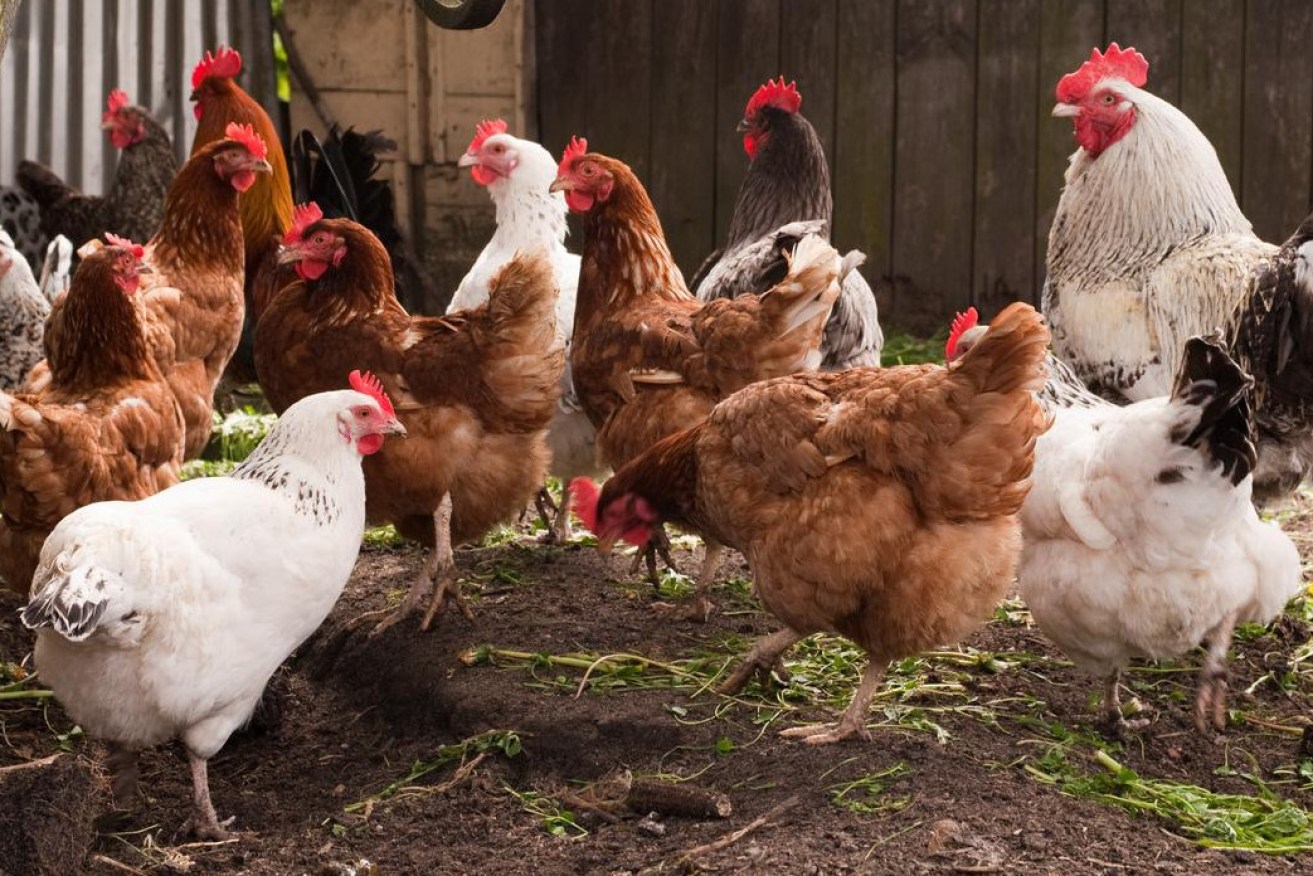Poultry effort: How outdated chicken rules have left $500m industry in a flap
Environmental safeguards and an industry worth $580 million to the Queensland economy are at risk of being trashed while a State Government plan remains bound up in red tape.


A second human case of the deadly bird flu has been discovered in the US. (Photo: Supplied)
The plan in question is the State Government’s ‘Development of Meat Chicken Farms in Queensland’, a document that was produced in 2016 and developed under the now superseded Sustainable Planning Act of 2009.
The Local Government Association of Queensland calls the 12-year-old framework “inadequate and outdated”.
With Queensland producing about 20 per cent of the nation’s chicken meat, and consumption on the rise at about 10 per cent year-on-year, the largely obsolete document is driving inconsistencies in assessment, enforcement and administration.
That’s causing uncertainty for local governments in Queensland and putting some mayors, like the Scenic Rim’s Greg Christensen, on edge as they worry about the risk of chicken meat farmers using the outdated plan to flout modern environmental compliance.
Chicken farming makes up about a third of the Scenic Rim’s agricultural output, contributing about $81 million to the local economy.
Christensen says he wants the industry to stay and prosper in the region, but that can’t happen in an environment where the regulations relating to environmental best practice are virtually non-existent.
“The industry claims a lot of improvement in this area, but there’s no data to back up those claims,” he said.
“We’ve developed our own planning scheme, but there remain significant gaps between what the state regards as acceptable.
“On that basis the industry does not perform at the highest level or comply with the best level guide that it claims to.
“We need an urgent independent assessment to clean this up so that we can move forward.”
Considered an intensive farming industry, which produces high volumes of odour, dust and effluent, many of the state’s chicken farms are located in south east Queensland.
That’s because chickens, unlike other livestock like cattle, are not great travellers on long-haul trucks and need to be in relatively close proximity to processing plants located mainly in and around Brisbane.
But the concentration of chicken meat production in the south east corner also means higher chances of community resistance and conflict, especially as residential development in the region is expected to explode over the coming decade.
While still a mostly rural based local government area, Somerset Region in the Brisbane Valley has 13 chicken farms of varying size and production.
Mayor Graeme Lehmann says his council supports poultry industry growth and wants to see it grow in a sustainable and balanced way that protects the region’s rural lifestyle.
But Lehmann concedes the impacts of poultry farms can cause significant conflicts with neighbours, particularly as new farms are proposed or existing farms grow in operation.
He says the lack of policy direction from the State Government is not helping.
In June this year, Somerset Council tried to take the initiative by hosting its own ‘poultry round table’ discussion that included farmers, state government agencies, Somerset Regional Councillors and staff in a bid to stave off future community flare-ups and costly legal action.
“This ambiguity disadvantages the poultry industry, council and the community, often resulting in expensive and complicated assessments and even Planning and Environment Court proceedings,” Lehmann said.
LGAQ says it has been calling for an urgent review of the guidelines for more than five years.
Former Deputy Premier, Minister for Transport and Minister for Infrastructure and Planning, Jackie Trad, wrote to LGAQ in September 2017, confirming the State Government was “currently reviewing the state- wide policy direction for poultry farming and the development assessment framework” and that “the review has been prompted by concerns raised by a number of local governments …”
Trad’s assurances failed to produce an outcome, the start of a long series of stonewalling efforts that have frustrated LGAQ.
At the 2017 LGAQ Annual Conference, councillors called for a review of the definition for ‘intensive animal industry’.
Trad again wrote to LGAQ in September 2018, confirming the State Government was reviewing planning matters surrounding poultry farms, and would be providing guidance material for local governments.
The former Department of Infrastructure, Local Government and Planning released a ‘Poultry Farming Regulatory Reform Proposal Paper’ in mid-2017, outlining proposed reforms to the existing regulatory framework for industrialised poultry farms.
The LGAQ made a submission on the proposed reforms in August 2017, highlighting concerns and outstanding issues raised by local government.
In October 2017, the department confirmed it would continue to further develop a poultry farming reform package prior to seeking ministerial approval for a state- wide public consultation process, however this work did not progress prior to the 2020 State election.
When asked about the delays and presented with the LGAQ timeline, the office of Trad’s successor, Steven Miles, deferred questions from InQueensland to a department spokesperson.
They said a review of the large-scale meat chicken farming regulatory framework was under way to forge “the best way forward to preserve and support the poultry industry while preserving the amenity of nearby landowners”.
“The department and other state agencies continue to engage with industry and local government, especially the challenges and importance of the industry in SEQ,” they said.










